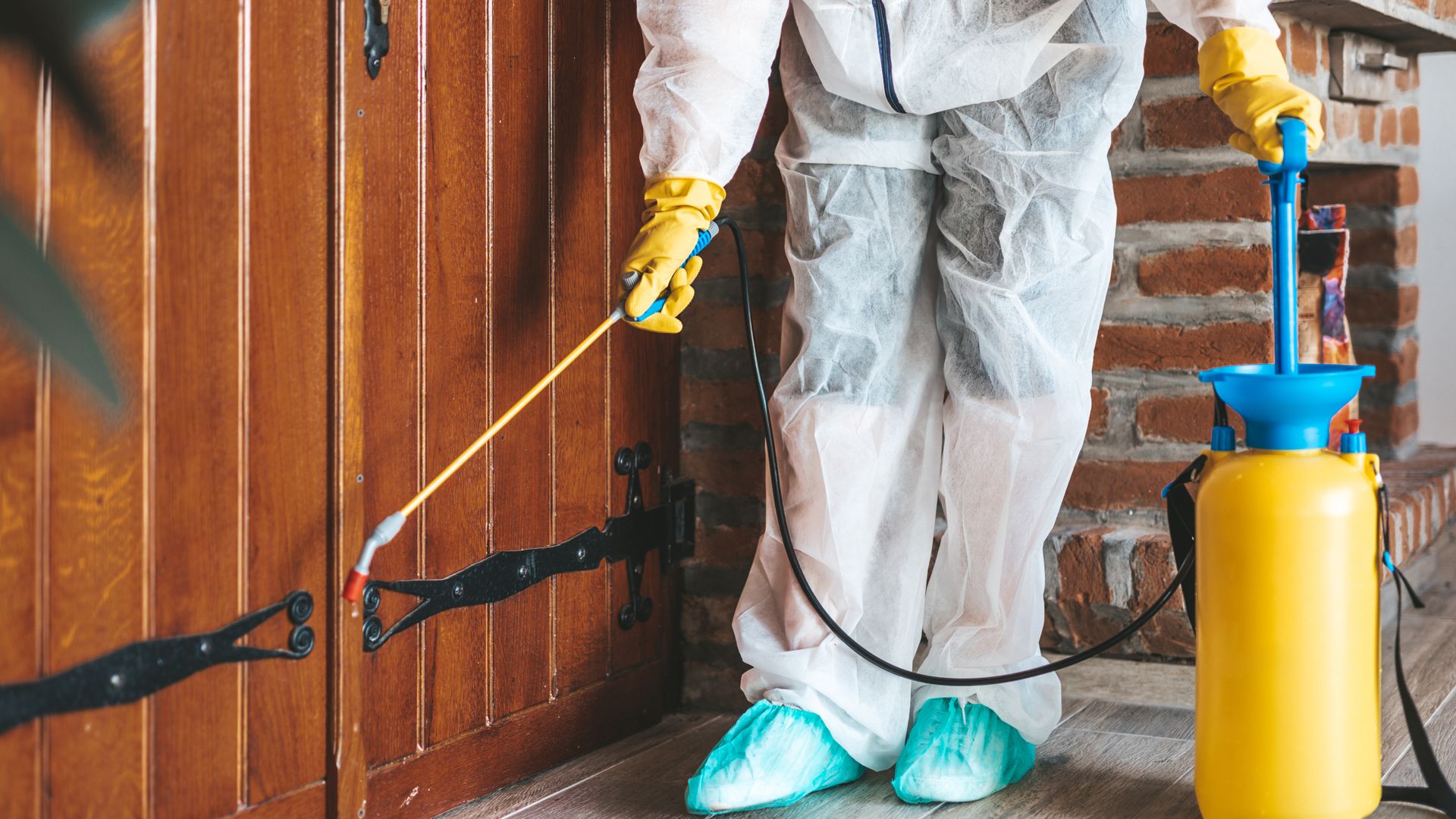
HOW TO NATURALLY KEEP PESTS AT BAY IN AIKEN
Do you know that there are ways to deter pests from getting into your home without using any control products? We call this all-natural home pest control. The secret to managing pests in this way is understanding how pests behave and how they get inside your home. Unlike DIY pest control for your home, all-natural options require no knowledge of control materials or methods of proper application. But all-natural home pest control isn't always the best solution. You need to know when to use natural home pest control and when to contact Aiken pest control for assistance. Today, we'll dive into this subject and tell you what you need to know to get the highest level of protection from your home pest control efforts. We'll also share some effective home pest control tips and tell you where professional pest control fits into the picture. Does that sound like a plan? Great! Let's get started.

The Many Pests That Can Try To Invade Your Home
We have quite a variety of pests in Aiken. Some of them stay in our yards and never invade indoor spaces. Some get inside but quickly regret it and go back outside. Some get inside and stay. Then, there are the unique pests that don't live outside at all. Yup. We have some of those. Our first task in analyzing all-natural home pest control is to consider the kinds of pests that enter homes, and what to do about them. Here are a few examples to help you sort things out:
- Some spiders get inside, and others don't. A garden spider is an example of a spider that prefers to stay in your yard. It has a high moisture requirement and can't find adequate food resources in your home. American house spiders are on the other side of the spectrum. They love living indoors. Some American house spiders are born indoors and so acclimated to indoor living that they don't survive when placed outside. Keep this in mind if you are a kindhearted individual who captures spiders and puts them outside.
- Some mice get inside, but others don't prefer to live indoors. House mice are pernicious and persistent pests, but deer mice are not. Deer mice are the mice that have a deer coloration. They are tawny on the top and white underneath.
- The world is filled with ants, and all ants are not created equal. Some ants make indoor nests, and others don't. The worst of the indoor nest makers are carpenter ants because they may chew tunnels in the wood of your home to create a cavity in which to create a nest. The ants that don't create indoor nests can still present a problem indoors because they can live near your home and routinely invade in large numbers.
- We have two multi-legged pests that invade our homes. They are centipedes and millipedes. One can harm you; the other won't harm you. Can you guess which is which? Centipedes are the pests that won't harm you. They are just creepy. Millipedes may harm you if you handle them. They excrete a fluid that can cause your skin to burn and it will irritate your eyes.
- Bed bugs and certain pantry pests are almost exclusively indoor pests in residential areas. They are carried into your home. Once inside, they will have no interest in leaving your home to escape any repellents you use.
- Fleas and ticks are hitchhikers that come into your home on your dog or cat. They can also come inside with rats, mice, and other furry animals. Most ticks can't survive indoors. Brown dog ticks are a notable species because they can complete their entire lifecycle indoors. Fleas have no trouble living indoors. They're actually incredibly adept at surviving indoors and also adept at outsmarting flea control treatments.
- Wasps, bees, and hornets sometimes create indoor nests. The reason they do this is that they mistake your man-made structures for trees. In nature, stinging insects often create nests in tree cavities. An entry point that leads into a wooden structural void will do nicely for these potential pests.
These are just some of the common pests in our Aiken service area. But this short list provides insight into the challenges of pest control. Each pest is slightly different, and you must consider these differences when attempting to keep them out.
All The Issues Pest Infestations Can Cause In Your Home
It would take pages to tell you all the issues pests can cause. For the sake of brevity, we'll boil them down a bit:
- Some pests sting or bite. These pests can have venom, and their venom may make you sick.
- Some pests bite and spread diseases with their saliva. Ticks and mosquitoes are examples of pests that can do this.
- Some pests are filthy, and their presence in your home can make you sick with stomach ailments, or worse. Cockroaches and rodents fall into this category.
- Some pests can stain your belongings when they invade for only a short time. Box elder bugs, clover mites, ladybugs, and millipedes do this.
- Some pests damage the coating on wires and are considered a fire hazard. Rats, mice, and certain ants do this.
- Some pests damage wood by chewing tunnels or feeding on wood. Termites, carpenter ants, carpenter bees, and powderpost beetles are the pests that do this. They are also referred to as wood-destroying organisms (WDOs).
While all of the pests listed above can impact your health and damage your property in many unique ways not mentioned, you get the idea. It isn't good to have any of these critters in your home.
Natural Pest Prevention Tips For Your Home
Now we get to the meat and potatoes of our subject. While there are a variety of pests that may try to enter your home, most are deterred with a few of the same methods. We'll share some common all-natural home pest control strategies and describe some of the pests that are deterred by taking these steps:
- Almost all pests enter homes because they can. Even pests that can tunnel through wood, like the carpenter ant, won't typically create an entry point. It will use a gap, crack, or hole that is already available. Use a caulking gun to seal these entry points. If you have a larger void, use expanding foam. For rodents, strong materials, such as wire mesh, hardware cloth, or metal flashing are needed.
- Along with patching potential entry points, it is essential to apply home improvement pest control. The same methods you use to weather-proof your home will also pest-proof your home.
- Once you've addressed potential entry points, consider potential routes. Some pests will scale grass blades, landscape vegetation, and other small plants near your exterior to get to higher entry points. Ants do this. While an ant can scale the side of your home, it takes a lot of energy, and thousands of ants aren't going to do that. But they'll quickly access your home by way of a branch or plant that touches your exterior. Trim vegetation away from your exterior. Trim tree branches away from your roofline to deter larger pests, like rats, squirrels, and mice.
- Keep your trash covered and your receptacles free of pest-attracting odors. That stinky smell is unpleasant to you, but to certain pests, that odor is like ringing a dinner bell. Also, keep trash receptacles away from your exterior doors to prevent flies from zipping right into your garage or home when you open a door.
- Rake leaves, pick up nuts, and move bird feeders away from your exterior. All of these will remove food sources and habitats that attract pests.
- Many pests eat nectar, and a source of nectar that can bring these tiny pests into your yard is flowering weeds. Think about it. A tiny ant doesn't know that you have food in your home or food sources in your landscaping. It isn't going to crawl all the way across your lawn to get to your home. Nectar in flowering weeds brings them in. Address weeds to apply counterpressure.
Do you see how it works? When you reduce food sources and block access, you can keep most pests away. While bed bugs and pantry pests are unaffected, all other pests are deterred.
The Stress-Free Way To Your Pest-Free Home In Aiken
Life is busy, and work is often tiring for most people. When you get home, the last thing you may want to do is clean your trash receptacle, fill in a gap around an exterior pipe, or trim branches on a nearby tree. The stress-free road to pest-free living is to get a year-round pest control service plan. Your service professional applies layers of protection to reduce pests in your yard, limit pest activity near your home, and keep pests from entering. All of this is done while you sit back and enjoy your time off.
Are you in Aiken? If so, the service team at Aiken Pest Control would love the opportunity to help you find the right pest control services for your home and household. We employ friendly, knowledgeable troubleshooters. There is no pest problem we can't solve. Connect with us today to discuss your options. We're here to help.

Hear from our happy customers
-
“They are always very helpful and pleasant from the field technicians to the people answering the phone.”- Audrey A.
-
“Mr. Cecil was very thorough in his inspection of my home, and even identified a couple of potential problems that I would never have known about.”- Stephanie F.
-
“He is a very kind young man. And always continue to deliver your great service to us.”- Ruby S.
-
“This was the first time I met him as we have been a long time customer of Aiken Pest Control. I hope he will be our normal scheduled tech that comes out!”- Samantha G.
-
“He was extremely knowledgeable and took care with the safety of my dog and my horses pony. He was polite and definitely went the extra mile for my family!!”- Christina W.


Latest Blogs
Stay informed about pests and pest related issues in your area!


